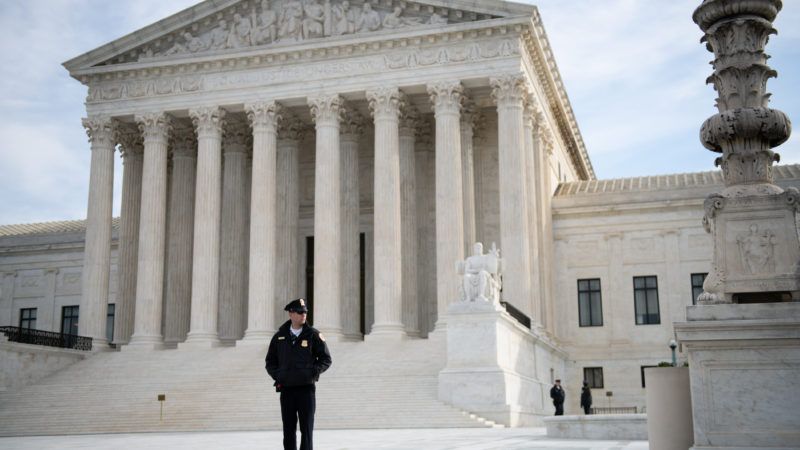State Supreme Courts Stand Up for Economic Liberty While SCOTUS Falls Down on the Job
"We have long interpreted the Georgia Constitution as protecting a right to work in one's chosen profession free from unreasonable government interference."

The U.S. Supreme Court has an unfortunate habit of shortchanging certain constitutional rights.
When the justices hear a case involving a possible infringement on the right to free speech, they generally presume that the regulation at issue is unconstitutional and force the government to justify its actions. That is as it should be.
But when the Court considers a possible infringement on the right to economic liberty, it grants the government a broad degree of deference, not only presuming the regulation to be constitutional but also forcing the regulated party "to negative every conceivable basis which might support it." In other words, the Supreme Court tips the scales heavily in favor of the government in economic liberty cases.
Fortunately, several state supreme courts have stood up where SCOTUS has fallen down on the job. In Patel v. Texas Department of Licensing and Regulation (2015), the Texas Supreme Court voided an occupational licensing scheme for eyebrow threaders, on the grounds that the regulation served no legitimate health or safety purpose and violated the economic liberty secured by the Texas Constitution. As Justice Don Willett observed in concurrence, "this case is fundamentally about the American Dream and the unalienable human right to pursue happiness without curtsying to government on bended knee." (Disclosure: Willett favorably cited my book Overruled in his Patel opinion.)
The Georgia Supreme Court gave economic liberty its due in a case decided today. Jackson v. Raffensperger arose from a 2018 law that required lactation consultants to obtain an occupational license from Georgia's secretary of state before they are permitted to offer professional advice about breastfeeding. Mary Jackson, a veteran lactation consultant with decades of experience, challenged the requirement in state court, arguing that it lacked a genuine public health or safety purpose and violated her right to earn a living under the state constitution. The Fulton County Superior Court dismissed her case, arguing that the Georgia Constitution protects no such rights.
The Georgia Supreme Court disagreed. "The trial court erred," the state high court said today. "We have long interpreted the Georgia Constitution as protecting a right to work in one's chosen profession free from unreasonable government interference." Thanks to that ruling, Jackson's case against the occupational licensing law has been revived and will now move forward.
It's a shame that SCOTUS doesn't show the same fidelity to the economic liberty that's secured by the federal Constitution.


Show Comments (38)